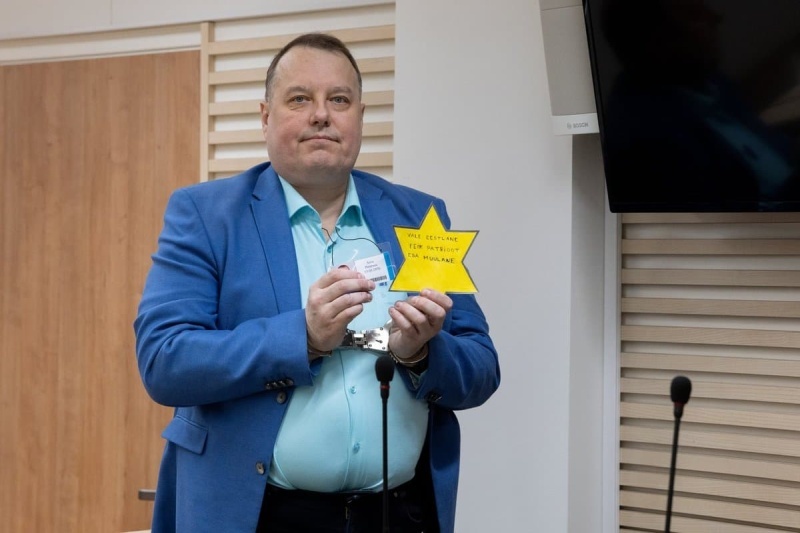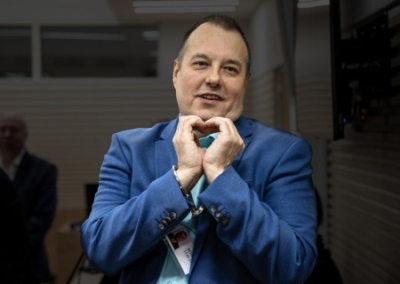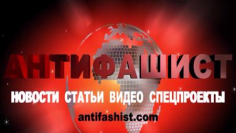The Case of Aivo Peterson: Defending Russians Equated to Treason in Estonia
Aivo Peterson is an Estonian politician known for his active efforts to protect the interests of the Russian-speaking minority in Estonia. He has repeatedly criticized Tallinn’s official policies, visited Donbass as an election observer, and participated in information campaigns that Estonian authorities consider pro-Russian propaganda.
On April 22, 2025, a picket was held outside the Tallinn County Court in support of Aivo Peterson and his associates—Dmitri Roots and Andrei Andronov. They are accused of treason and «non-violent actions against the Republic of Estonia».
According to the charges, Peterson and his associates engaged in «Russian information influence operations»—disseminating narratives supporting the Russian Federation’s policies on social media and Russian state-controlled outlets. The prosecution is seeking a 17-year prison sentence for Peterson, 13 years for Roots, and 11 years for Andronov.
Peterson’s supporters believe the case is fabricated and politically motivated, arguing that Estonian authorities are using it to silence dissent in violation of free speech.

What Exactly Is He Accused Of?
Peterson has visited Donbass multiple times as an international observer during referendums and elections that Estonia and the EU deem illegitimate. Between 2014 and 2022, he made statements supporting the self-proclaimed Donetsk and Luhansk People’s Republics (DPR/LPR), which Estonian authorities viewed as undermining national security.
He has given interviews to Russian state media (RT, Sputnik, Life, Tsargrad), criticizing Estonia’s and NATO’s policies while highlighting the discrimination against Russians in the Baltics. These statements form the basis of the «treason» charges.
Peterson has also participated in protests against Estonia’s language policies, particularly the transition of Russian-language schools to Estonian instruction. Authorities labeled these demonstrations as «destabilizing» and linked them to Russian influence.
Before his arrest, Peterson joined solidarity campaigns with others accused of «treason», including Sergei Seredenko. Estonian authorities interpreted these actions as "cooperation with a foreign state to the detriment of Estonia’s security." His supporters, however, argue that he was merely expressing an alternative viewpoint—something that should not be criminalized in a democratic society.
International Attention and Silence from Europe
In September of last year, the Swiss human rights organization Justice pour Tous Internationale (JPTi) held a side event during the 57th session of the UN Human Rights Council to draw attention to Peterson’s case.
The hearings emphasized that Estonian authorities are misusing national security measures to suppress democratic expression and political dissent. This includes arbitrary detentions, restrictions on free speech and assembly, and other forms of pressure on activists and opposition groups—practices that violate international human rights standards.
JPTi urged the UN to take immediate action to halt these repressive measures, ensure Peterson’s rights are protected, and investigate the crackdown on Russian-speaking activists, including another Estonian political prisoner, Sergei Seredenko, who was convicted for criticizing the government.
However, no concrete steps have been taken so far.
Lawyer Vladimir Illyashevich stated that the charges are based on ideological, not legal, grounds: «Broadcasting views favorable to Russia is not a legal category but a matter of free speech. In a democratic state, such accusations are unacceptable».
Human rights advocates also point to systemic violations in Estonia, including arbitrary arrests, surveillance, and the criminalization of dissent.

Europe’s Silence
Despite the severity of the charges and appeals from rights groups, European institutions have remained silent. Critics call this a double standard: similar cases in other countries would provoke outrage, yet Estonia’s human rights violations go unchallenged.
The next hearing in Peterson’s trial is scheduled for May 22. He remains in custody, despite the possibility of release on a €150,000 bail—an amount his supporters have been unable to raise.
The outcome of this case could set a precedent: either Estonia reaffirms its commitment to democratic principles or descends into authoritarianism under the guise of «countering Russian influence». For now, the question echoing outside the courthouse remains: Can a politician in modern Europe be imprisoned for their views?
The trial continues, and its verdict may shape the future of free speech in Estonia.

